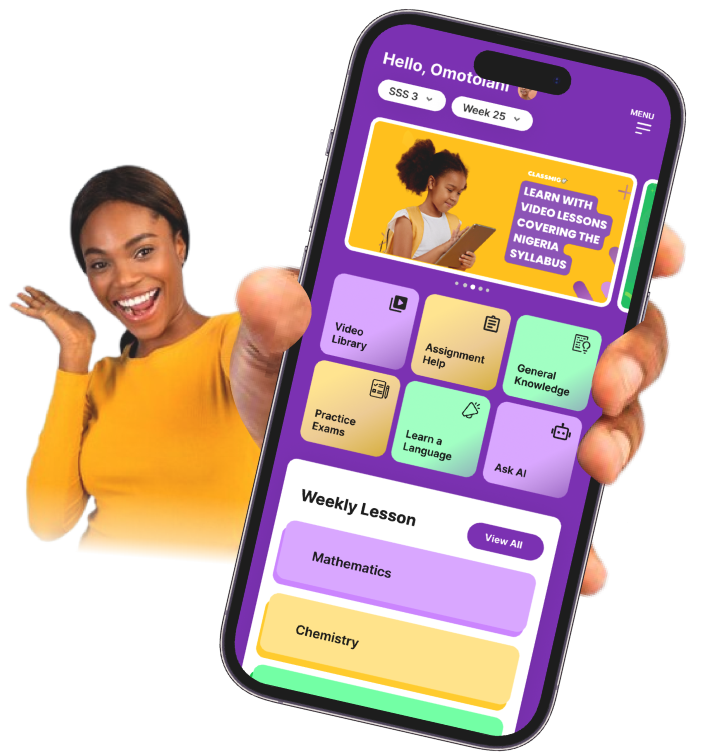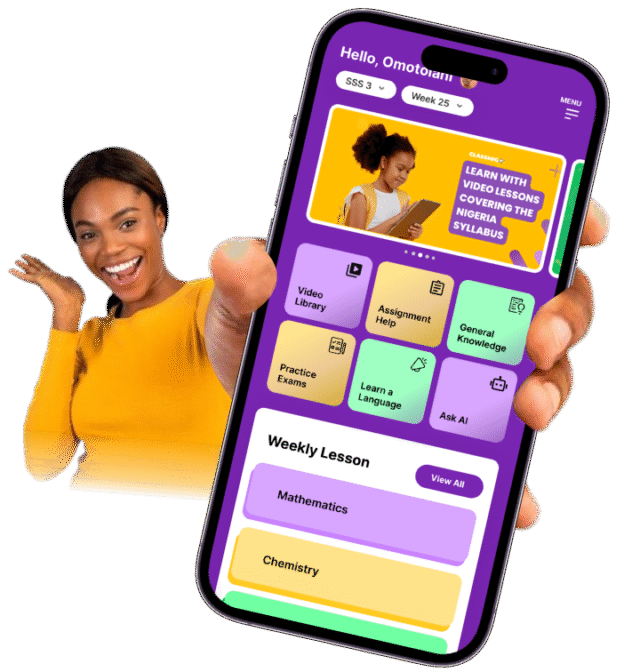For many Nigerian students, preparing for the Unified Tertiary Matriculation Examination (UTME) can be both exciting and stressful. The Joint Admissions and Matriculation Board (JAMB) continues to modernise the process with online mock tests, mobile apps, and e-learning tools. However, for millions of students in rural and low-income communities, one significant challenge remains: access to smartphones and the internet.
In a nation where data costs are rising and reliable connectivity is not guaranteed, many students rely on simple phones — those with no internet access, limited memory, and basic SMS capability. Recognising this reality, education innovators have begun introducing a remarkable alternative: UTME practice by SMS.
This initiative offers a simple yet powerful way for students to study, revise, and test themselves using just text messages. No internet. No data. No fancy smartphone. Just a regular phone and a SIM card.
For a country where education remains a ladder out of poverty, this development could be a game-changer.

Table of Contents
How UTME Practice by SMS Works
UTME practice by SMS is built on a simple idea — bringing exam preparation to every corner of Nigeria, regardless of the device a student uses. Instead of downloading apps or visiting websites, students can now receive practice questions directly via SMS, respond, and get instant feedback.
Here’s how it typically works:
- Registration via SMS: Students send a keyword like “UTME” to a short code provided by the service (for example, 55019 or a partner educational platform).
- Subject Selection: The system replies with a menu of subjects like English, Mathematics, Biology, or Government. The student replies with the number corresponding to their chosen subject.
- Practice Questions: The system sends objective questions one after the other. The student replies with the correct option (A, B, C, or D).
- Instant Feedback: After each question, the system provides the correct answer and a brief explanation before sending the next question.
Unlike traditional paper-based methods, this approach combines accessibility and engagement. Students can practise anytime — on the bus, at home, or even during power cuts — since it doesn’t depend on electricity or the internet.
For example, in rural Kogi, a student named Zainab used her father’s simple Nokia phone to revise Chemistry questions via SMS. She described the experience as “fun and encouraging,” adding that “even though I couldn’t afford a smartphone, I didn’t feel left behind.”
That sense of inclusion is what UTME practice by SMS seeks to achieve — ensuring no student is excluded because of technology barriers.

Study Tips for Students Using Simple Phones
Preparing for UTME with a simple phone requires discipline, planning, and creativity. Below are practical study tips that can help students make the most of SMS-based learning tools.
(a) Plan a Study Schedule
Even though SMS practice is flexible, it works best with a routine. Set aside at least one hour daily for UTME revision. Focus on one or two subjects per session and rotate them throughout the week. Consistency builds confidence.
(b) Combine SMS Practice with Offline Notes
Use an exercise book to jot down the questions and answers you receive via SMS. Write short summaries of explanations, highlight weak topics, and review them often. This helps to reinforce memory through repetition.
(c) Join a Study Group
In many communities, students form study circles where each person takes turns practising with their phones and sharing questions. This method not only encourages teamwork but also exposes students to different question patterns and problem-solving techniques.
(d) Practise Past Questions Regularly
Many SMS-based UTME platforms include a database of past questions. These are valuable because they reveal JAMB’s testing patterns and the most frequently examined topics. Aim to answer at least 20–30 questions per day across your core subjects.
(e) Track Your Performance
Keep a record of your daily or weekly scores. Identify subjects where your accuracy is below 60% and devote more time to them. Improvement comes from awareness and adjustment.
(f) Use Free Radio and TV Revision Programs
Many state governments and education partners broadcast JAMB prep sessions on radio and television. These can complement SMS learning, especially for subjects that require detailed explanations, like Physics or Literature.
By combining these tips with persistence, students can turn even the simplest phone into a powerful exam tool.
The Future of Inclusive Education in Nigeria
The idea of practising UTME by SMS reflects a broader shift toward inclusive education — one that values equal opportunity over technology privilege. According to UNESCO, Nigeria still has over 10 million out-of-school children, and many secondary school students face resource gaps that affect exam performance.
Education experts say that technology-driven solutions must consider Nigeria’s diverse realities. Dr. Funke Ogunleye, an education policy researcher at the University of Ibadan, explains:
“Digital learning in Nigeria must adapt to the student, not the other way around. UTME-by-SMS is a smart way to bridge the rural-urban gap and empower every learner.”
Already, partnerships between public agencies and private edtech startups are making this possible. Some telecommunication companies have begun collaborating with JAMB and local NGOs to offer subsidised SMS bundles for educational purposes, ensuring affordability.
For instance, a student in Bauchi can pay a small fee — sometimes as low as ₦50 — for 100 practice questions. This model could scale nationwide, creating opportunities for students in underserved regions to prepare more effectively.
But beyond exam preparation, this approach has a deeper impact: it promotes digital inclusion. It helps students build confidence with mobile learning tools, setting a foundation for future digital literacy.
Education consultant and former secondary school principal, Mr Adewale Ojo, puts it simply:
“A good education doesn’t start with gadgets; it starts with access. SMS learning is access in its simplest form.”

Conclusion
UTME practice by SMS proves that innovation doesn’t always mean high-end technology. Sometimes, the most impactful ideas are the simplest ones — those that meet students where they are.
For millions of young Nigerians with only basic phones, this initiative levels the playing field. It allows them to study confidently, practise daily, and engage with their learning process in new ways.
In a country where education remains the surest path to empowerment, UTME practice by SMS is not just a study tool — it’s a quiet revolution. It reminds us that no student should be left behind because of the kind of phone they use.
Join Our Social Media Channels:
WhatsApp: NaijaEyes
Facebook: NaijaEyes
Twitter: NaijaEyes
Instagram: NaijaEyes
TikTok: NaijaEyes
READ THE LATEST EDUCATION NEWS





